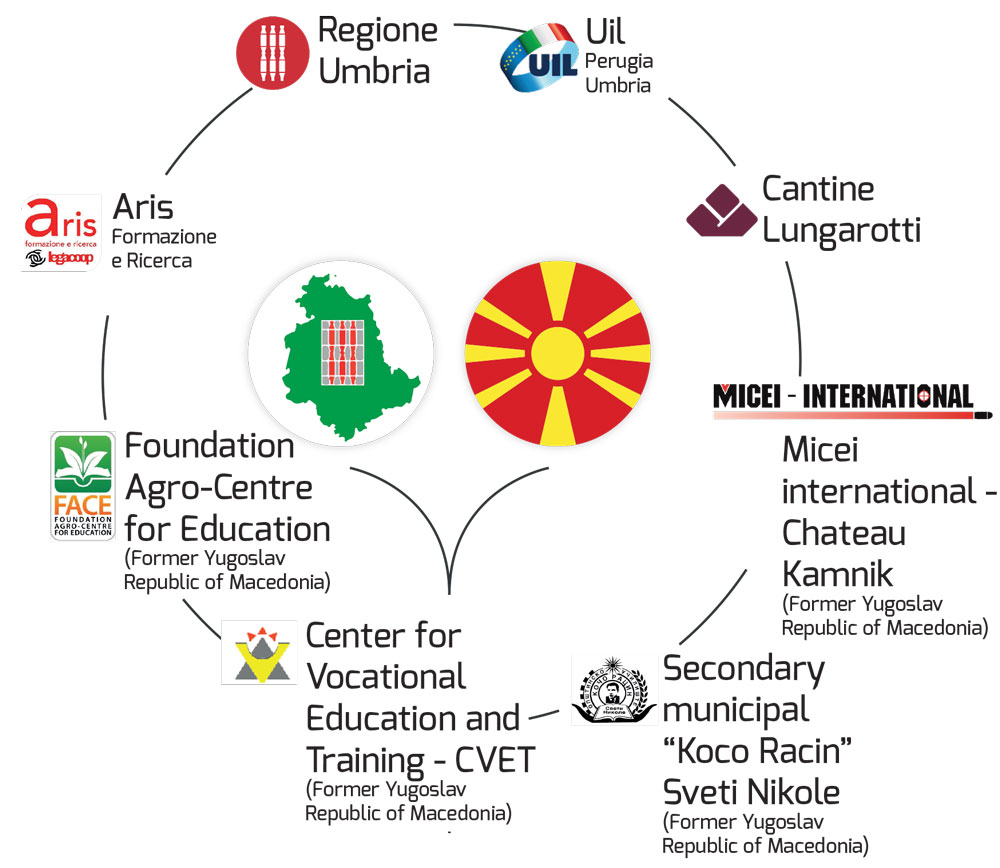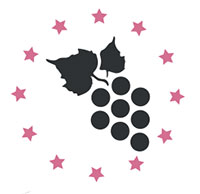EU is world-leading wine producer, and socio-economic dimension of European wine sector is very relevant.
With a large majority of small producers and family labour force, it employs over 3 million people: about 20% of employment in EU agriculture, and 10% of agricultural production value.
Supported by EU policy, wine sector enhances its competitiveness, preserves wine growing best traditions, boosts rural areas, and offers job opportunities
(https://ec.europa.eu/agriculture/wine_en)
(www.ceev.eu/about-the-eu-wine-sector).
Despite importance of wine sector, in many European countries and regions lack VET opportunities to get skills required by the market, particularly at higher-level. Macedonian NQF is under construction, still without VET standards in wine sector. Umbrian VET standards (Italian Constitution grants regional competence in VET) not include qualifications for wine sector, while for apprentices national agriculture labour agreement briefly describes a specific low-level profile. In both territories, wine production is a key economic and labour intensive activity, and either show high unemployment rates, particularly for youths.
Macedonian and Umbrian VET providers, qualification authorities, wine sector companies and organisations share these needs and (to increase youth employability, develop highly skilled, qualified and mobile workforce needed by companies, support European joint VET developments, and strengthen VET quality, relevance, attractiveness) cooperate to prepare and set up the post-secondary (EQF 5) joint VET qualification “Winemaker Specialist”. Building on prior ECVET experiences, they will:
- analyse focused professional/learning field in involved NQF/RQF, and transferable practices for transparency in VET
- design a detailed qualification profile, outlining expected learning outcomes in terms of knowledge, skills and competences in clearly identified units
- establish the joint qualification profile and set up, by MoU ECVET, the cooperation structure to ensure transparency, comparability, quality, mutual recognition
- design a joint curriculum, clarifying training strategy to reach learning outcomes with strong workbased learning component, and supporting learner mobility
- define a joint guideline for learning outcomes assessment, listing specific requirements learners
have to comply with to be successful
- support effective integration of joint standards in concerned NQF/RQF.
Target groups are Macedonian and Umbrian VET learners (particularly youths and apprentices) who will get the qualification, VET providers using the standards, and wine sector companies benefitting of this highly skilled, qualified, mobile workforce. As wine sector strongly requires higher-level skills, and since qualification integration in NQF/RQF, envisaged impact is relevant on both VET learners employability, and sectoral companies competitiveness, as well as on joint developments in VET in Europe, and overall VET quality, relevance, attractiveness.




 Growing market
Growing market Rural zone development
Rural zone development Job opportynity
Job opportynity
 design a detailed
design a detailed establish, by Mou ECVET,
establish, by Mou ECVET, design a joint curriculum,
design a joint curriculum, define a joint guideline for learning outcomes assessment
define a joint guideline for learning outcomes assessment Macedonian and Umbrian VET learners
Macedonian and Umbrian VET learners